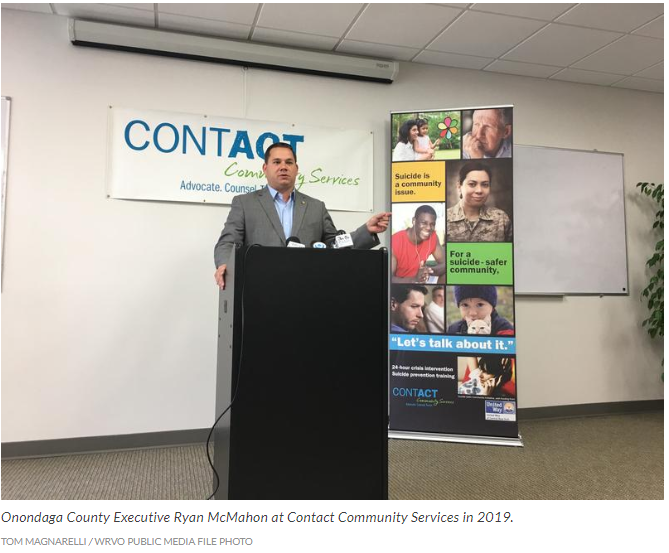‘Drastic increase’ in calls at 211 CNY, as agency connects residents with food, financial resources
Originally posted on WRVO, Tom Magnarelli, April 10, 2020
To listen, please click here: ‘Drastic increase’ in calls at 211 CNY, as agency connects residents with food, financial resources
 211 CNY is the call center for five central and northern New York counties that connects people with basic needs. Their call volume has increased drastically since the start of the coronavirus pandemic in March. Access to food and paying bills are among the top concerns.
211 CNY is the call center for five central and northern New York counties that connects people with basic needs. Their call volume has increased drastically since the start of the coronavirus pandemic in March. Access to food and paying bills are among the top concerns.
There were more calls coming into 211 in the last two weeks in March than what they typically get in a month. Katie Lemery-White, the program manager, said there is a heightened level of anxiety in the larger volume of calls, and one worry is where some people are going to get food.
“That’s people who normally don’t have an issue going to grocery stores, seniors who are afraid to go out, people of low income who are worried about where they are going to get their food next,” Lemery-White said.
After Onondaga County had its first case of coronavirus, County Executive Ryan McMahon asked 211 to set up a phone line specifically for those 55 and older, to get home-delivered meals, expanding on what Meals on Wheels already does. Lemery-White said they’ve been assisting with signing people up for that program.
“They might go to a community meal site, they might be able to go grocery shopping, but because of this current situation, they’re really becoming homebound,” Lemery-White said. “Their normal supports might not be available.”
She said they are also getting a lot of calls about financial assistance.
“A lot of people have lost their jobs as a result of this pandemic and they’re trying to apply for unemployment and there are concerns about that because so many people are applying at once,” Lemery-White said.
Calling 211 can get you information on the expanded unemployment benefits, and New York State’s 90-day moratorium on evictions.
“They will have to pay back that rent or mortgage eventually,” Lemery-White said. “But right now, so they can focus, if they need to use their money to get food, we want them to do that and know that they’ll have a place to stay.”
Utilities are also suspending their shutoffs. 211 is operated by Contact Community Services, which started as a crisis hotline. Lemery-White said fear is an underlying part of almost every call they’re getting right now.
“There’s a lot of reassurance that we’re doing,” she said. “A lot of listening to what people are going through, trying to provide that connection. Even though they might not be able to leave their home, they know that there is somebody there. They can feel somebody else in the room, another presence, support, so they’re not alone.”
Even after the crisis passes, there will still be a lot of needs in the community and 211 will continue to be there to help people get to a new normal.
